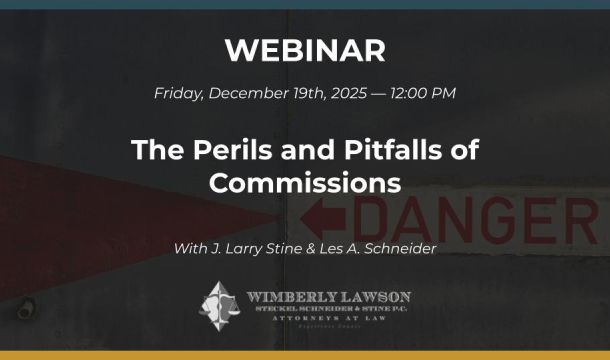So You Want to Hire an Unpaid Intern: The Department of Labor Has Some New Guidelines
The Department of Labor has issued new guidelines for employers that want to hire unpaid interns. These new guidelines are much less stringent than the previous Obama-era guidelines and should allow more employers to set up qualified unpaid internships.
Keep in mind that the FLSA requires "for-profit" employers to pay employees for their work. Interns and students, however, may not be "employees" under the FLSA—in which case the FLSA does not require compensation for their work. Application of the new guidelines will determine whether an intern should be paid or not.
The new DOL guidelines use a 7 factor "primary beneficiary test" to determine whether an intern or student is, in fact, an employee under the FLSA. This test allows courts to examine the "economic reality" of the intern-employer relationship to determine which party is the "primary beneficiary" of the relationship. The following seven factors are part of the test:
- The extent to which the intern and the employer clearly understand that there is no expectation of compensation. Any promise of compensation, express or implied, suggests that the intern is an employee—and vice versa.
- The extent to which the internship provides training that would be similar to that which would be given in an educational environment, including the clinical and other hands-on training provided by educational institutions.
- The extent to which the internship is tied to the intern's formal education program by integrated coursework or the receipt of academic credit.
- The extent to which the internship accommodates the intern's academic commitments by corresponding to the academic calendar.
- The extent to which the internship's duration is limited to the period in which the internship provides the intern with beneficial learning.
- The extent to which the intern's work complements, rather than displaces, the work of paid employees while providing significant educational benefits to the intern.
- The extent to which the intern and the employer understand that the internship is conducted without entitlement to a paid job at the conclusion of the internship.
The "primary beneficiary test" is supposed to be a flexible test, and no single factor is determinative. Accordingly, whether an intern or student is an employee under the FLSA necessarily depends on the unique circumstances of each case.
If analysis of these circumstances reveals that an intern or student is actually an employee, then he or she is entitled to both minimum wage and overtime pay under the FLSA. On the other hand, if the analysis confirms that the intern or student is not an employee, then he or she is not entitled to either minimum wage or overtime pay under the FLSA.
Pro tip: When in doubt, it is always safer to go ahead and pay an intern at least the minimum wage.

Kathleen J. Jennings is a former principal in the Atlanta office of Wimberly, Lawson, Steckel, Schneider, & Stine, P.C. She defends employers in employment matters, such as sexual harassment, discrimination, Wage and Hour, OSHA, restrictive covenants, and other employment litigation and provides training and counseling to employers in employment matters.
Related Content
Get Email Updates
Recent Content

Department of Homeland Security (DHS) is Terminating Family Reunification Parole (FRP) Processes

DHS is Terminating Temporary Protected Status for Ethiopia

Issues Regarding Employee Access to Their Personnel Files

Issues of Employer Access to Employees’ Personal Devices Such as Cell Phones, Etc

Settlement Agreement Wording Can Determine Tax Treatment



